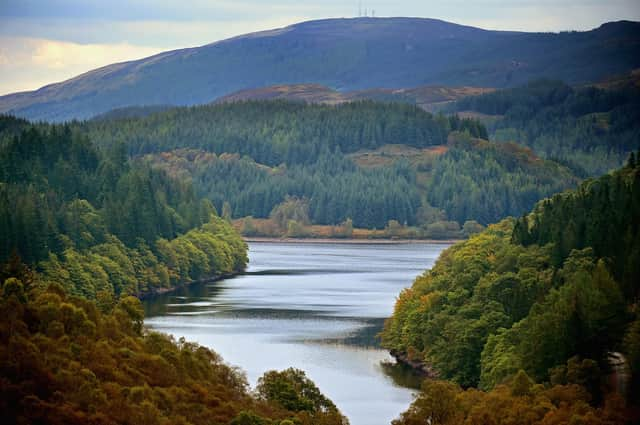Climate change: 'Green lairds' and investors buying Scottish land as a carbon store need to realise their responsibilities – Hamish Trench, Scottish Land Commission


Scotland finds itself well positioned by virtue of our geography and nature to support the global climate challenge and make the most of the very significant financial interest in our land from governments and investors from around the world, creating win-win economy and nature benefits.
We know there will be significant land-use change ahead – more woodland, large-scale peatland restoration, better soil and carbon management – and that private as well as public finance will be significant in driving this.
Advertisement
Hide AdAdvertisement
Hide AdBut we are in the early stages of rapidly developing markets for carbon and natural capital. The values and future revenues involved are uncertain, the regulatory framework is not yet developed and land values are increasing, with tempting potential choices for land owners and managers but little clarity over issues such as ownership of the rights and the need to retain them in offsetting their own business emissions in the future. So now is the time to shape these markets to work in the public interest.
We can already see different ways this will influence the market and ownership. Some businesses and corporate institutions are seeing the acquisition of land for off-setting carbon emissions as a key part of their future strategy. Others may be more focused on investing and generating returns through trading in carbon credits, either acquiring land directly to do so or simply trading ‘rights’.
With such a rapidly developing influence in land ownership, values and markets, the pressing question is, how do we do this well? There are some fundamental questions to consider – especially if carbon and natural capital values do grow – about a fair and productive balance of public and private benefit.
We are looking at two key aspects. First, what the implications are for the land market and second, how the costs and benefits are shared. If carbon and natural capital values do grow, as those buying in early anticipate, then it’s reasonable that increases in value from a shared national resource create public as well as private benefit. We will provide advice to government on the public policy implications and work with those in practice to shape responsible approaches on the ground.
We also need to carefully consider ownership – in particular how the rights to carbon and natural capital are framed in law, their interaction with land rights and the implications for different tenure systems such as agricultural tenancies and crofting.
We think there is learning here from experience in previous natural resource windfalls, for example oil and gas, renewables, and will be looking at historic and international experience to draw out relevant lessons.
On a more immediate note, those buying land now for carbon, just as for any other motivation, should understand that with rights go responsibilities. Responsible governance that engages communities in both decision-making and benefit needs to be considered.
There is no need to wait for policy or legislation to catch up, though regulatory frameworks will undoubtedly develop. It’s open to us all to start to work collectively to shape responsible practice and set shared expectations.
Advertisement
Hide AdAdvertisement
Hide AdHamish Trench is chief executive of the Scottish Land Commission
A message from the Editor:
Thank you for reading this article. We're more reliant on your support than ever as the shift in consumer habits brought about by coronavirus impacts our advertisers.
If you haven't already, please consider supporting our trusted, fact-checked journalism by taking out a digital subscription.
Comments
Want to join the conversation? Please or to comment on this article.
